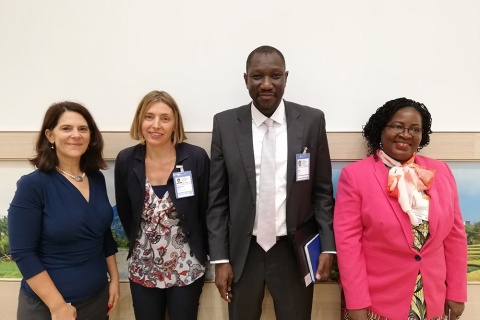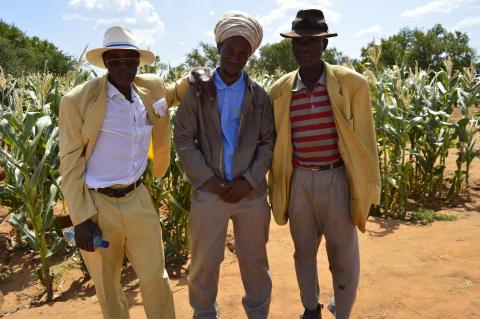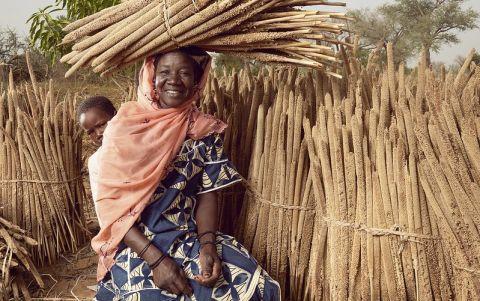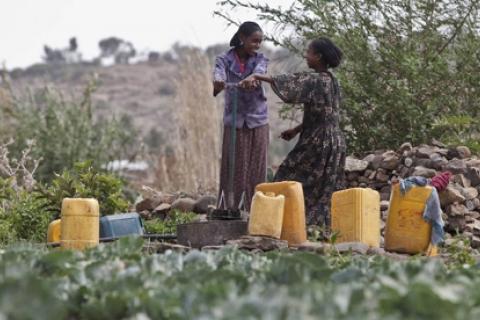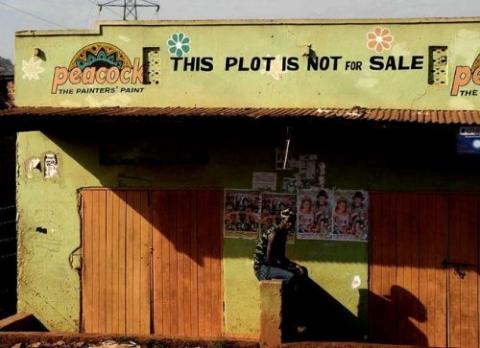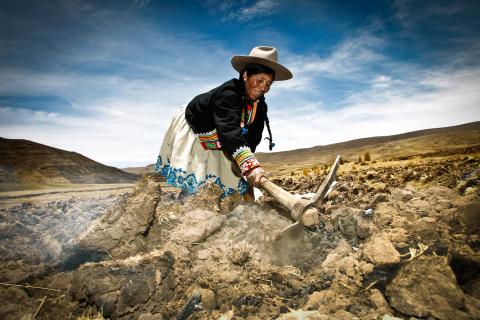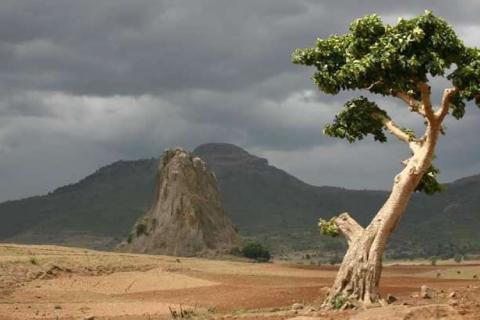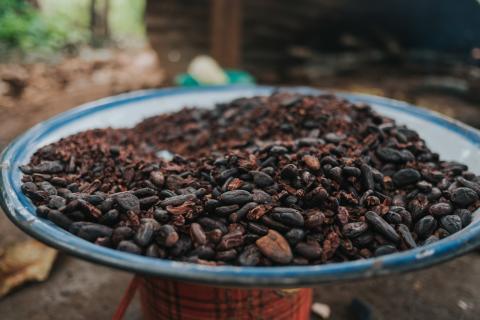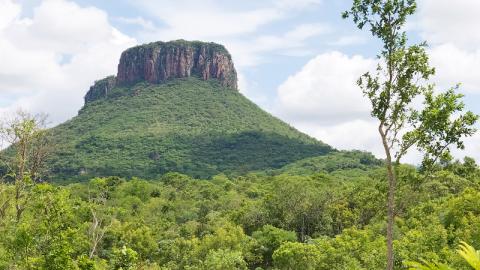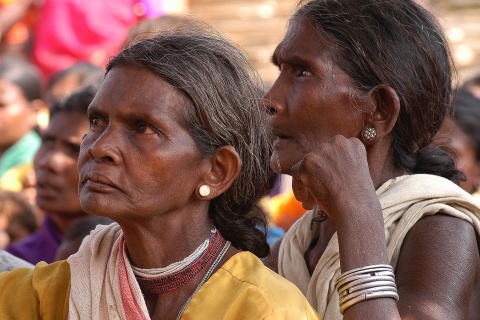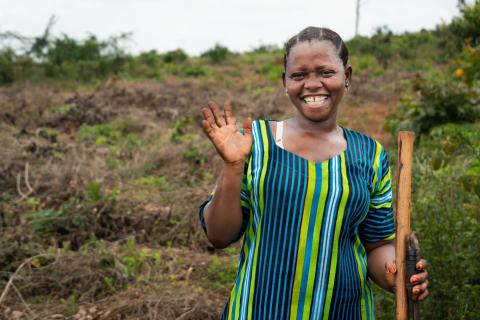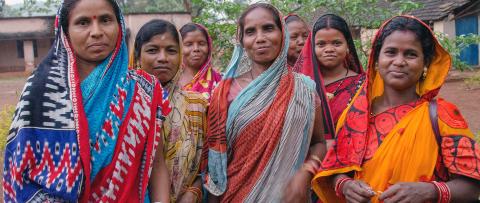Discover hidden stories and unheard voices on land governance issues from around the world. This is where the Land Portal community shares activities, experiences, challenges and successes.
 Follow our
Follow our
Sustainable Development Goals
Blog Series!
Interested in land corruption?
Follow our Land & Corruption Blog Series
for in-depth perspectives from the experts.
Issues
Geographical focus
At CFS 46, the Land Portal had the opportunity to be the co-organizer of the side event How the VGGT have changed rural women’s lives: Key strategies and innovations towards gender equality together with GLTN Unit UN-Habitat, the Cadasta Foundation and the Food and Agriculture Organization of the United Nations (FAO). This side event brought together a range of experts who illustrated efforts aimed at ensuring women’s land rights through both formal institutions and customary systems.
It has been decades since Africa’s independence, and the peasants (rural land cultivators) are still suffering. How did Africa ignore the agricultural sector, after the peasants ushered the continent’s independence? Agriculture has become Africa’s “sunset” sector making the continent the most impoverished region, with over 70% rural poverty, heavy dependence on donor food aid valued at over US$ 51 million annually and high rates of unemployment. At least Africa is now embarking on agrarian reforms after years of neo-colonialism.
Second in a series of blog posts on the release of the 2019 Annual Trends and Outlook Report (ATOR) at the ReSAKSS Annual Conference in Lomé, Togo, Nov. 11-13.
Using data collected from over seven million land records, this study examines the extent to which a systematic registration and certification program has contributed to women’s land tenure security. The Land Investment for Transformation (LIFT) program is a six-year DFID-funded program that aims to improve incomes of the rural poor and enhance economic growth in Ethiopia.
“This plot is not for sale” are the six words you will find, marked on a lot of properties and plots of land in Uganda. The words are meant to ward off quack land or property brokers and conmen. Most of the cases handled in courts in Uganda, and Kampala in particular, are fraud-related cases (like selling land while the true owners are away using counterfeit titles) and land transaction fraud (when fake land titles are obtained and sadly some officers in the land registry are involved).
Considering that land tenure security is crucial to better outcomes for women it is a surprise that there is not more evidence out there on what works to achieve it.
Last week the World Cocoa Foundation, a membership organization of more than 100 cocoa companies, held its annual partnership meeting in Berlin, Germany. The aim of the meeting is for governments, cocoa companies and farmers to identify and tackle the sector’s largest sustainability challenges. A 90-minute session was devoted to the topic of land tenure. The prominence of the session, as well as the seniority of the presenters – the Head of Sustainable Sourcing for Hershey’s and the Deputy Director General of Cote d’Ivoire’s Land Agency among them – is a powerful signaling effect.
In the last 15 years, Paraguay lost a greater share of its forest than almost any other country on Earth. While soy farming once drove deforestation in the east, the focus of Paraguay's forest loss has since moved west to the low-lying, thorn-forested Chaco, where cattle ranching has claimed over 3.7 million hectares (9 million acres) of forest for pastureland – an area about the size of the Netherlands – between 2001 and 2015.
The daughters of Uttar Pradesh, the most populous state in India, face a vexing decision: Marriage or inheritance?
In 2006, when the state first recognized the rights of unmarried daughters to inherit family land, it simultaneously left millions of women with a dilemma. While ostensibly a step toward gender equality, the new law excluded married daughters, meaning that women who married would face the prospect of weakening or losing their rights to inherit land in their birth family. Daughters of the state were effectively left to choose between marriage and land ownership.
In rural areas around the world, the face of a farmer is increasingly a woman’s.
From the paddy terraces of Asia to the maize fields of sub-Saharan Africa, she will till, plant, water, and harvest crops that feed her household and whole communities.
On the 2019 International Day of Rural Women, Landesa’s Shipra Deo explores how land rights are an essential element for overturning misperceptions about the role of women in society and on the farm.
In a workshop with a group of agronomists who work in agriculture extension in India, I ask the participants to draw the picture of a farmer with whom they work. All but one of them draw male figures.

